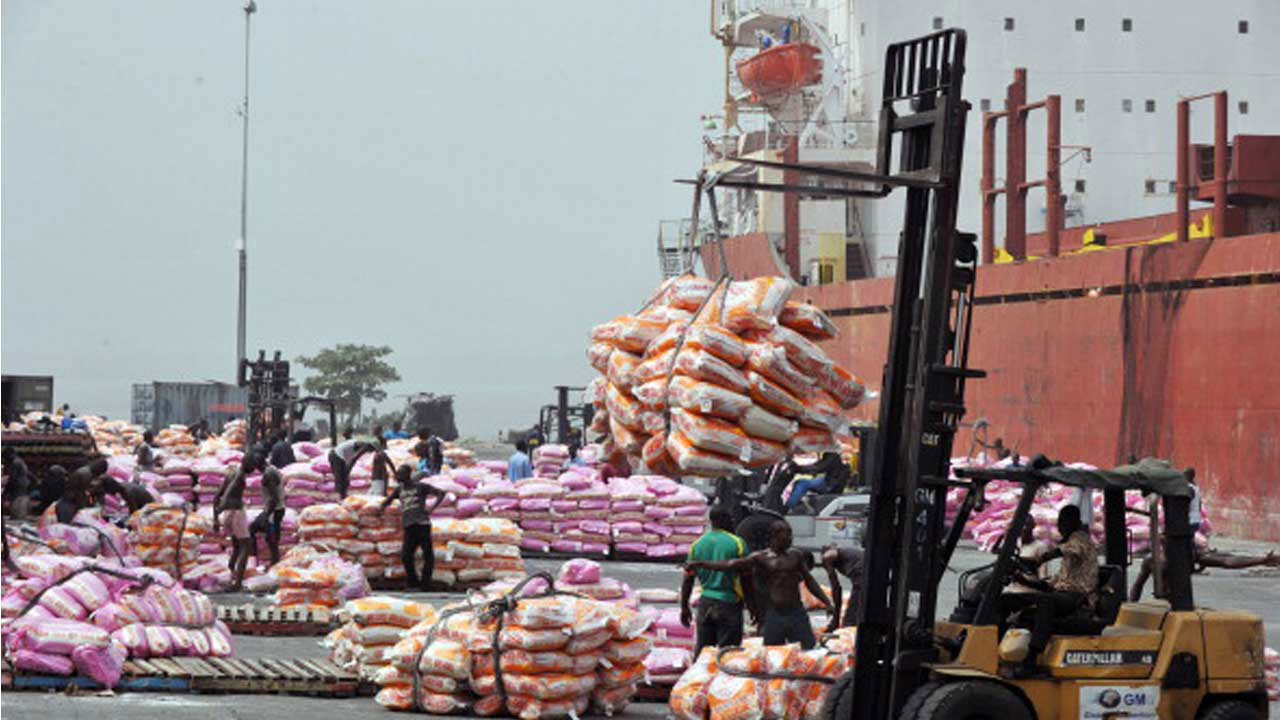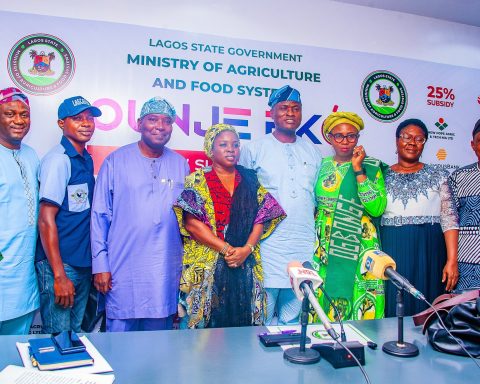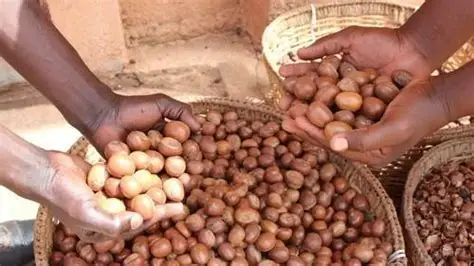Nigeria is blessed with over 70 million hectares of arable land, abundant rainfall, and a youthful population eager for work. Yet the country spends an estimated $10 billion annually on food imports, a bill that keeps rising even as millions of its citizens go hungry.
This paradox has become one of Nigeria’s most pressing development questions: How can a food-producing nation still be food-insecure?
Join our WhatsApp ChannelThe Netherlands: Farming with Science, Not Size
The Netherlands is barely the size of Niger State, yet it is the second-largest agricultural exporter in the world. Dutch success is built not on land size but on technology and precision.
Dutch farmers rely on greenhouses, vertical farms, and precision agriculture to maximize yields while conserving water and land. Government-backed research hubs connect farmers, scientists, and universities, ensuring innovations quickly move from labs to fields.
For Nigeria, where post-harvest losses exceed 40%, the Dutch model highlights the urgency of modern storage, irrigation, and research-driven farming rather than dependence on rain-fed agriculture.
India: Policy Continuity and Farmer Support
India, with a population seven times Nigeria’s, has achieved self-sufficiency in staples like rice and wheat through long-term, consistent agricultural policies.
Its National Agroforestry Policy (2014) integrates trees, crops, and livestock on the same land, boosting soil fertility and incomes. India has also invested heavily in irrigation, subsidies, and minimum price guarantees, shielding farmers from market shocks.
Nigeria’s biggest weakness, should be policy inconsistency. Every new administration scraps the programs of its predecessor, leaving farmers stranded.
READ ALSO: Black Market Dollar (USD) To Naira (NGN) Exchange Rate Today, 28th August 2025
Australia: Turning Drought into Opportunity
With one of the harshest climates on earth, Australia turned drought into a driver of innovation. Farmers adopted climate-smart practices such as no-till farming, crop rotation, and deep-soil ripping, raising yields significantly.
At the heart of this success is the Grains Research and Development Corporation (GRDC) a farmer–scientist partnership that drives practical, field-ready solutions.
For Nigeria, battered by both floods and drought, such research extension partnerships could place climate adaptation at the heart of farming.
Ethiopia: An African Success Story
Two decades ago, Ethiopia was one of Africa’s most food-insecure countries. Today, it is often cited as an example of agricultural recovery, thanks to sustained investment in smallholder farmers, rural roads, and extension services.
By prioritizing agriculture in national budgets, training farmers, and improving access to markets, Ethiopia has lifted millions from poverty.
It shows that African nations can grow food security from within if policy focuses on smallholder farmers, who make up the bulk of the sector.
READ ALSO: NAFDAC Alerts Public to Counterfeit Batches of Postinor-2 in Circulation
Morocco: Fertilizer and Soil Strategy
Morocco has built its agricultural recovery on fertilizer sovereignty. By investing in phosphate mining and local fertilizer production, it improved soil fertility and yields. Coupled with modernized irrigation, Morocco increased food production despite water scarcity.
Nigeria, with its own phosphate reserves and fertilizer plants, could adopt a similar approach but corruption, distribution bottlenecks, and weak logistics often prevent fertilizers from reaching farmers on time.
Saudi Arabia: From Importer to Exporter
Saudi Arabia, once fully dependent on imports, poured billions into irrigation, mechanization, and crop research in the 1980s. Within decades, it became a wheat exporter and later diversified into fruit and vegetable exports across the Middle East.
Nigeria, by contrast, already has the fertile soil and rainfall lacks yet insecurity, poor infrastructure, and low mechanization which keeps it from harnessing this natural advantage.
“Nigeria has the land, the people, and the climate to feed itself. What it lacks is consistency and innovation.” Johnson Makinde an Agricultural policy analyst
READ ALSO: Court Orders Forfeiture of N5bn Shares Linked to Ex-Army Properties MD
Why Nigeria Still Lags Behind
Despite its potential, several deep-rooted challenges stifle Nigeria’s agricultural growth:
- Insecurity: Banditry and insurgency in the North displace farmers from their fields.
- Infrastructure Gaps: Poor roads, inadequate silos, and weak cold-chain storage cause massive losses.
- Financing Constraints: Farmers face limited access to affordable credit.
- Policy Inconsistency: Frequent program changes discourage investment.
- Land Tenure Issues: Unclear ownership deters long-term investments.
- Technology Deficit: Limited mechanization and weak extension services suppress productivity.
- Climate Change: Erratic rainfall, flooding, and desertification worsen yields.
“Farmers are facing low yields because the government has failed to develop infrastructure like dams to help mitigate the effects of climate change.” Daniel Obiora, President, All Farmers Association of Nigeria
The MoU with Brazil: A Turning Point?
In July 2025, Nigeria signed a Memorandum of Understanding (MoU) with Brazil to strengthen cooperation in agriculture, technology transfer, and agribusiness investment.
Under the agreement, Brazil is expected to share expertise in mechanized farming, irrigation, and large-scale crop management. For Nigeria, this represents a chance to leapfrog decades of stagnation by adopting proven technologies and diversifying its food production base.
If implemented fully, the MoU could reduce import dependency, create jobs, and spur agribusiness growth. It also signals that Nigeria is beginning to take international agricultural partnerships more seriously.
“Before entering major agricultural agreements, Nigeria must first address insecurity, update and enforce agricultural laws, and build transparent, accountable institutions.” said Dr. Marcel Mbamalu, Jefferson fellow and Publisher of Prime Business Africa
According to Dr Mbamalu “Without reforms in farmer cooperatives, research, and standards enforcement, MoUs risk becoming ineffective talkshops rather than engines of food security and rural prosperity.”
“Nigeria must move beyond subsistence farming and treat agriculture as an industry, not just a rural livelihood.” Prof. Akin Alabi, Agricultural Economist
Why Growing Locally Matters
Growing food domestically is more than just about saving foreign exchange. The benefits ripple across the economy:
- Employment: Over 80% of Nigeria’s farmers are smallholders who, if supported, could absorb millions of youths into productive farming.
- Food Security: Reduced dependence on imports shields Nigeria from global price shocks.
- Rural Development: Improved farming boosts rural incomes, curbing migration to overcrowded cities.
- Value Addition: Locally grown crops feed agro-industries, from flour mills to breweries.
The Water Crisis and Smallholder Struggles
Smallholder farmers responsible for 90% of Nigeria’s agricultural production remain trapped in low-yield cycles. Many still work their fields with little more than crude tools and bare hands.
Water scarcity worsens the crisis. In Adamawa State, changing rain patterns and drying rivers have affected more than 1,250 hectares of farmland, according to Nigeria’s National Emergency Management Agency. Farmers say yields are declining yearly as local streams and ponds vanish.
“There is little data on the drying-up of smaller water bodies across the north. But farmers say the trend has been worsening.”
The Way Forward
Nigeria’s agricultural transformation will not come overnight, but experts point to clear priorities:
- Invest in infrastructure: roads, irrigation dams, silos, and cold-chain logistics.
- Guarantee policy stability: so farmers and investors can plan long-term.
- Expand credit access: tailored loans and insurance for farmers.
- Strengthen security: so farmers can return to abandoned fields.
- Boost research–farmer linkages: adopting climate-smart farming models.
- Promote agripreneurship: to attract young Nigerians to farming.
Nigeria spends billions importing food that it could grow. It has the land, climate, and manpower, yet insecurity, weak infrastructure, and policy failures keep it dependent on imports.
The examples of the Netherlands, India, Ethiopia, and even Saudi Arabia prove that agricultural transformation is possible even under harsher conditions.
Nigeria now faces a defining choice: remain a food-importing nation or harness its natural advantages to become an agricultural powerhouse.
Amanze Chinonye is a Staff Correspondent at Prime Business Africa, a rising star in the literary world, weaving captivating stories that transport readers to the vibrant landscapes of Nigeria and the rest of Africa. With a unique voice that blends with the newspaper's tradition and style, Chinonye's writing is a masterful exploration of the human condition, delving into themes of identity, culture, and social justice. Through her words, Chinonye paints vivid portraits of everyday African life, from the bustling markets of Nigeria's Lagos to the quiet villages of South Africa's countryside . With a keen eye for detail and a deep understanding of the complexities of Nigerian society, Chinonye's writing is both a testament to the country's rich cultural heritage and a powerful call to action for a brighter future. As a writer, Chinonye is a true storyteller, using her dexterity to educate, inspire, and uplift readers around the world.
- Amanze Chinonye
- Amanze Chinonye
- Amanze Chinonye
- Amanze Chinonye
- Amanze Chinonye
- Amanze Chinonye
- Amanze Chinonye
- Amanze Chinonye
- Amanze Chinonye
- Amanze Chinonye
- Amanze Chinonye
- Amanze Chinonye
- Amanze Chinonye
- Amanze Chinonye
- Amanze Chinonye
- Amanze Chinonye
- Amanze Chinonye
- Amanze Chinonye
- Amanze Chinonye
- Amanze Chinonye
- Amanze Chinonye
- Amanze Chinonye
- Amanze Chinonye
- Amanze Chinonye
- Amanze Chinonye
- Amanze Chinonye
- Amanze Chinonye
- Amanze Chinonye
- Amanze Chinonye
- Amanze Chinonye
- Amanze Chinonye
- Amanze Chinonye
- Amanze Chinonye
- Amanze Chinonye
- Amanze Chinonye
- Amanze Chinonye
- Amanze Chinonye
- Amanze Chinonye
- Amanze Chinonye
- Amanze Chinonye
- Amanze Chinonye
- Amanze Chinonye
- Amanze Chinonye
- Amanze Chinonye
- Amanze Chinonye
- Amanze Chinonye
- Amanze Chinonye
- Amanze Chinonye
- Amanze Chinonye
- Amanze Chinonye
- Amanze Chinonye
- Amanze Chinonye
- Amanze Chinonye
- Amanze Chinonye
- Amanze Chinonye
- Amanze Chinonye
- Amanze Chinonye
- Amanze Chinonye
- Amanze Chinonye
- Amanze Chinonye
- Amanze Chinonye
- Amanze Chinonye
- Amanze Chinonye
- Amanze Chinonye
- Amanze Chinonye
- Amanze Chinonye
- Amanze Chinonye
- Amanze Chinonye
- Amanze Chinonye
- Amanze Chinonye
- Amanze Chinonye
- Amanze Chinonye
- Amanze Chinonye
- Amanze Chinonye
- Amanze Chinonye
- Amanze Chinonye
- Amanze Chinonye
- Amanze Chinonye
- Amanze Chinonye
- Amanze Chinonye
- Amanze Chinonye
- Amanze Chinonye
- Amanze Chinonye
- Amanze Chinonye
- Amanze Chinonye
- Amanze Chinonye
- Amanze Chinonye
- Amanze Chinonye
- Amanze Chinonye
- Amanze Chinonye
- Amanze Chinonye
- Amanze Chinonye
- Amanze Chinonye
- Amanze Chinonye
- Amanze Chinonye
- Amanze Chinonye
- Amanze Chinonye
- Amanze Chinonye
- Amanze Chinonye
- Amanze Chinonye
- Amanze Chinonye
- Amanze Chinonye
- Amanze Chinonye
- Amanze Chinonye
- Amanze Chinonye
- Amanze Chinonye
- Amanze Chinonye
- Amanze Chinonye
- Amanze Chinonye
- Amanze Chinonye
- Amanze Chinonye
- Amanze Chinonye
- Amanze Chinonye
- Amanze Chinonye
- Amanze Chinonye
- Amanze Chinonye
- Amanze Chinonye
- Amanze Chinonye
- Amanze Chinonye
- Amanze Chinonye
- Amanze Chinonye
- Amanze Chinonye
- Amanze Chinonye
- Amanze Chinonye
- Amanze Chinonye
- Amanze Chinonye
- Amanze Chinonye
- Amanze Chinonye
- Amanze Chinonye
- Amanze Chinonye
- Amanze Chinonye
- Amanze Chinonye
- Amanze Chinonye











